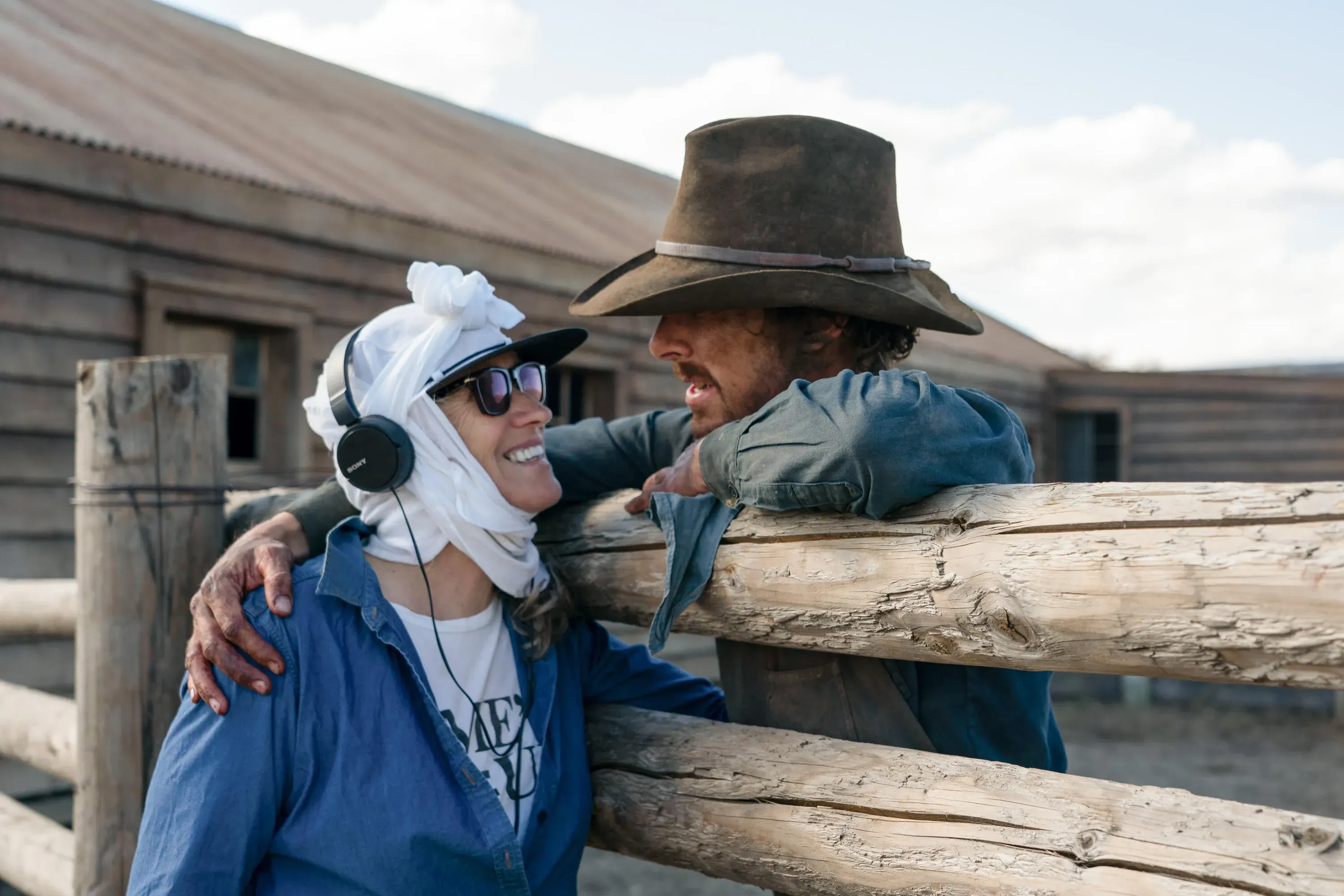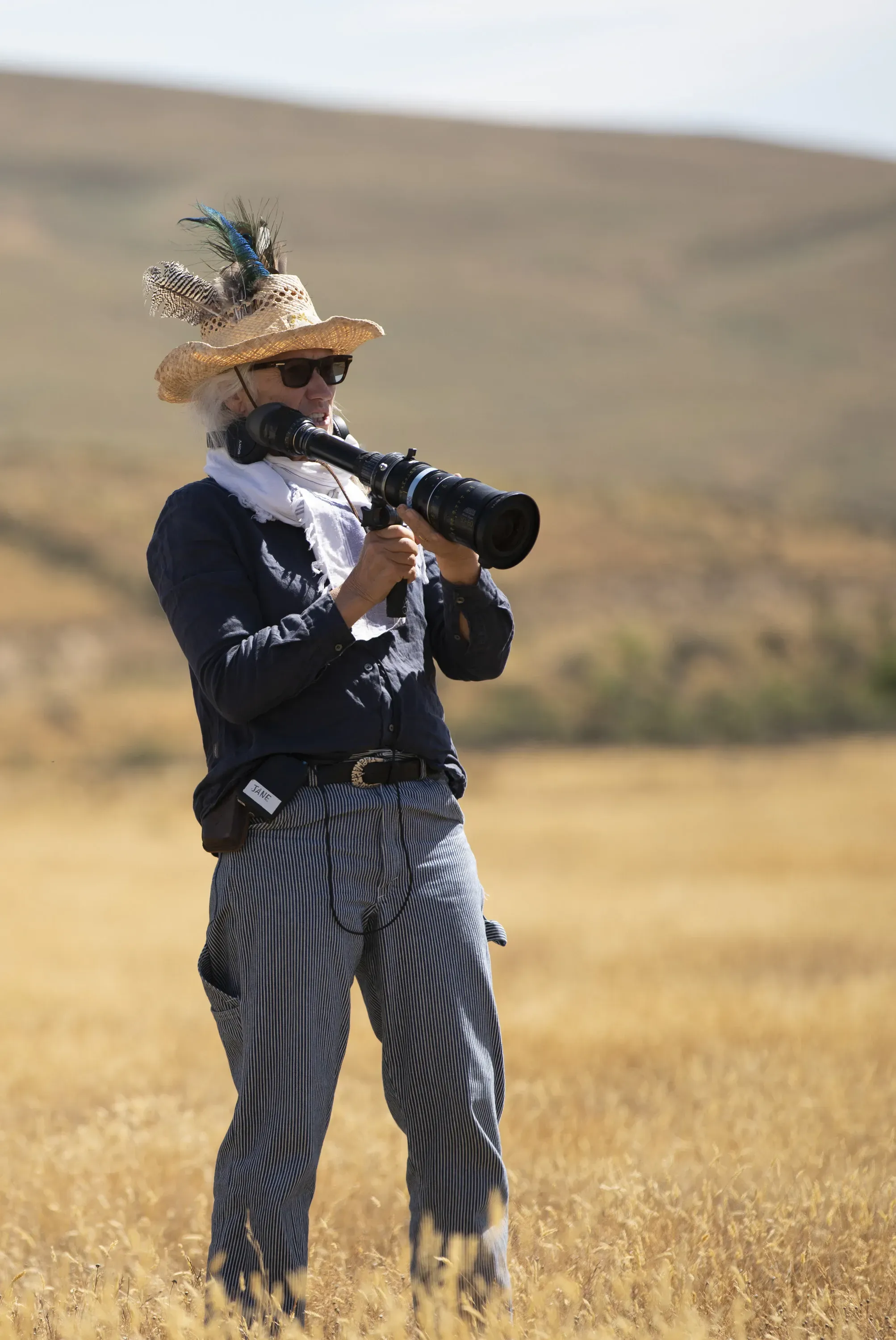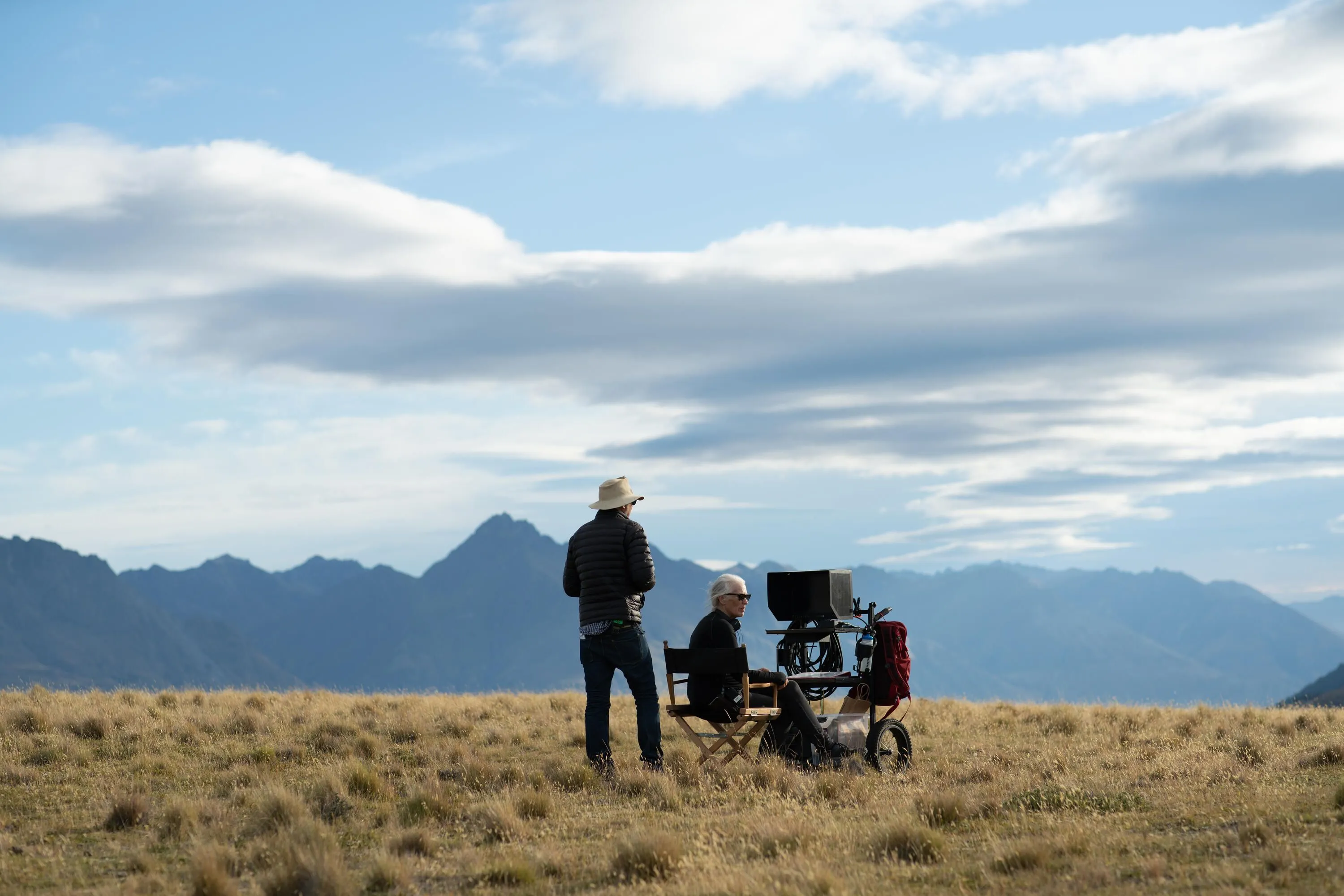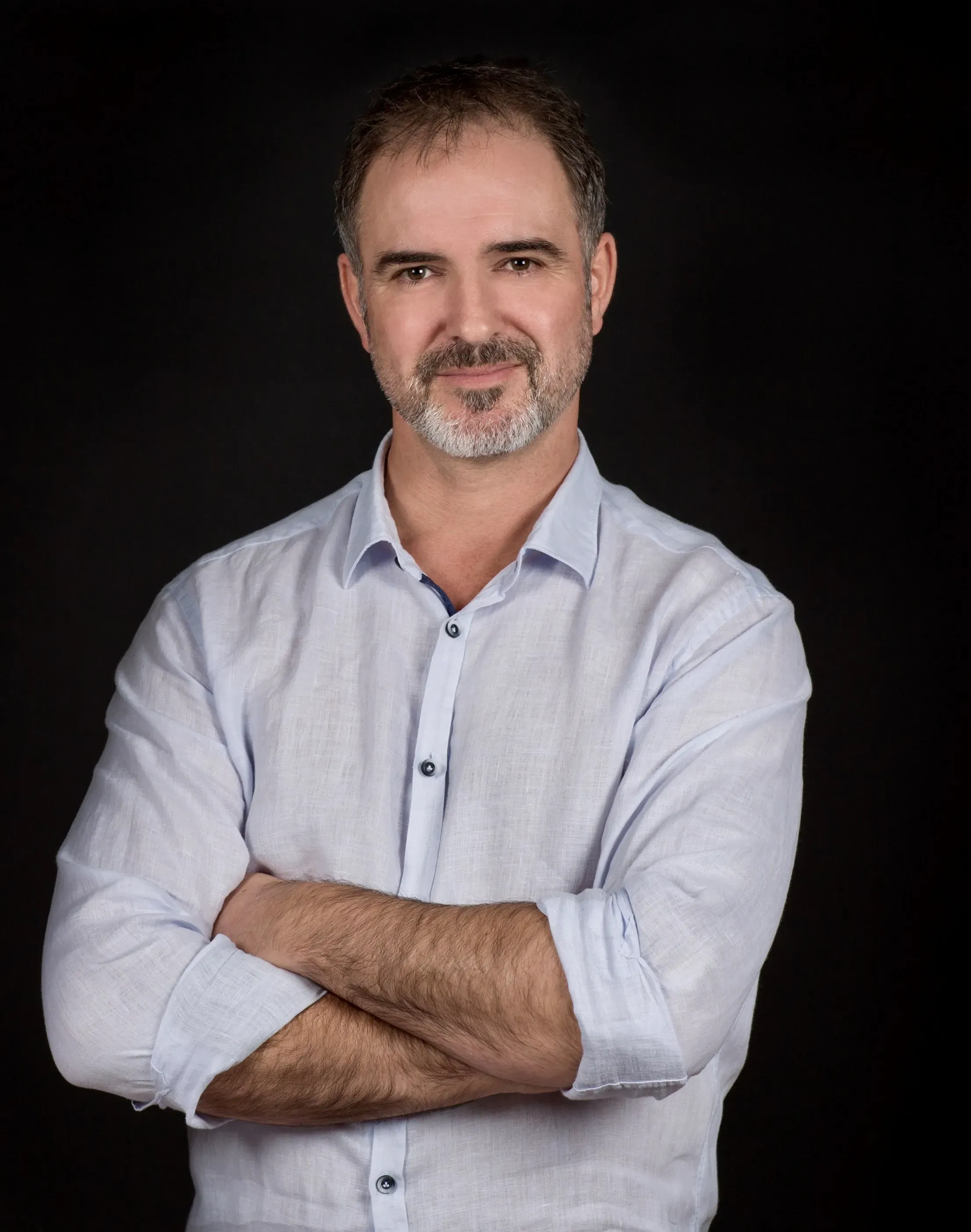The Power Of The Dame: How NZ Film Industry Can Tap In
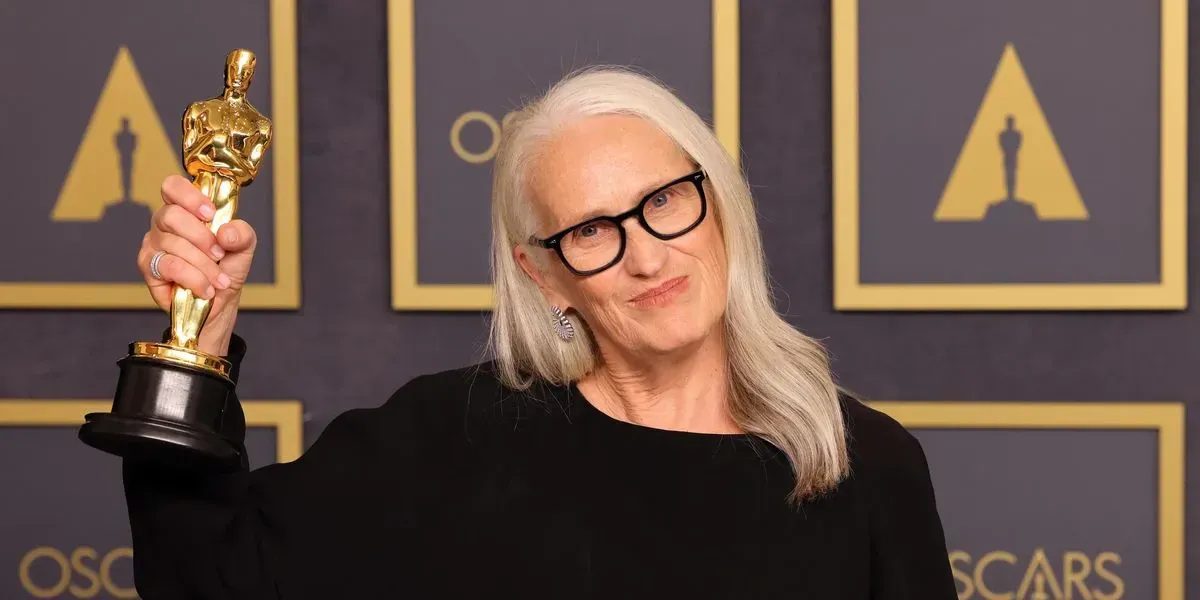
Dame Jane Campion’s confirmed passage into the pantheon of the world’s great filmmakers has far wider implications than just to her own success.
It helps to underline that New Zealand is still one of the premier film industries in the world - and we’re open for business.
Her OSCAR win for Best Director with Aotearoa-shot The Power of the Dog proves that experience that the self-proclaimed "grandmother of the women's movement in film" has garnered over the decades is a gift for the New Zealand born auteur.
Becoming the first-ever woman nominated twice for Best Director, she joins the ranks of only three women to have won that category in the 94-year history of the awards: Kathryn Bigelow for The Hurt Locker (2009), and Chloé Zhao for Nomadland (2020).
Dame Jane described the achievement as “a lifelong honour” when accepting her Oscar.
"Kia ora, kia ora Aotearoa New Zealand and Australia.
"I love directing because it's a deep dive into story, yet the task of manifesting a world can be overwhelming. The sweet thing is, I'm not alone.”
While she’s referring to her cast, crew, family and friends - it’s also true of the fact the New Zealand film industry was along for the ride too.
All hail Dame Jane
Speaking from Los Angeles after the awards, New Zealand Film Commission (NZFC) Chief Executive David Strong congratulated Dame Jane and all those involved with making the movie - including a large Kiwi crew.
"We are immensely proud of this achievement. Dame Jane is an artisan, a powerhouse in the film world, and surrounds herself with people of equal calibre.
“A win like this reinforces our national identity, bolsters national pride and it has put New Zealand firmly on the world stage."
Echoing his thoughts back in Aotearoa, Prime Minister Jacinda Ardern states "it's a phenomenal outcome, and I know we're all very proud of her. (For) Dame Jane to be there again - not once but twice - at this level, it's just phenomenal.
"It speaks to her skill, her talent, and she has used that to put New Zealand on the world stage."

Dame Jane Campion on set of The Power of the Dog. Photo: Supplied.
Executive director of The Directors and Editors Guild of Aotearoa New Zealand, Tui Ruwhiu says "Jane Campion's Academy Award for Best Director is deserved recognition for her directing talent, and a proud moment not just for the New Zealand screen industry but for the entire country."
In Wellington, writer and film producer Stuart McKenzie was thrilled with Dame Jane's win, especially as his daughter actor Thomasin Mckenzie had been part of the cast.
"Dame Jane is a person who constantly surprises, a formidable engine of creativity. What a testament to her - to win an Oscar for The Piano, and now again with The Power of the Dog.
“I can't wait to see the next thing Jane does. "

Partners in life and often in filmmaking, Stuart McKenzie and Miranda Harcourt. Photo: Supplied.
A spokesperson for The Screen Production and Development Association of New Zealand (SPADA) executive also praised the film and the light it throws onto the industry.
"The international accolades for The Power of the Dog are a testament to the hard work and dedication of all those who worked behind the scenes to make the production equally as seamless as it is successful.
“It's always a thrill to see the New Zealand screen sector shine on the world stage."
Strike while the iron is hot

Only in Aotearoa: the performance of the Central Otago scenery is one of the many selling points for the New Zealand Film Commission off the back of The Power of the Dog. Photo: Supplied.
The ceremony may be over, and the nominated casts and crews can finally put away their glad rags, but for industry producers and funding bodies, this is when it all begins again.
Members of the NZFC are in Los Angeles having development meetings with senior executives from major studios, production companies and streaming services.
Their message is definitive: New Zealand is open for business - come film here.
But what does that mean for us?

NZFC Chief Executive David Strong. Photo: Signy Gudlaugsdottir.
NZFC's Strong highlights that "The Power of the Dog employed 328 crew, 290 extras and 28 cast. Filming took place over 50 shooting days, with 17 weeks of pre-production.
“The Government invested $8 million into The Power of the Dog, and the movie provided a $28 million boost to the economy.
“The New Zealand screen sector contributes around $3 billion to New Zealand's economy. And there's around 20,000 people who say they work in the screen industry. We estimate around 60% of all production spend goes into other sectors that support screen, like construction, accommodation, travel, transport, that kind of thing.
“So it is an important part of New Zealand, and we get to see great New Zealand films on screen that we can be proud of. "
Dame Jane agrees with him.
"Coming home and working in New Zealand is always such a joy. The highly skilled creatives and calibre of the crew make it so easy. We are spoiled for choice when it comes to locations, all so diverse and accessible.
“The Government's investment through the New Zealand Screen Production Grant is a pivotal incentive to film in New Zealand."
Money well spent?

Dame Jane Campion shares a candid moment with Benedict Cumberbatch on set, one of the many international stars she lured to NZ for filming. Photo: Supplied.
The Film Commission has Screen Production Grants available for national and international productions (and co-productions) if they meet strict criteria. They are part of the New Zealand Government's screen incentives scheme, which also includes Post, Digital and Visual Effects (PDV) Grants.
Small rebates are available on money spent by International productions in New Zealand under specific criteria.
"I know so many people in the industry who have survived solely on work from foreign productions over the last couple of years. TV, in particular, has been good to us. The production incentives are vital." Says acting coach and filmmaker Miranda Harcourt.
But not everyone agrees.
I spoke to a New Zealand filmmaker of some standing who is unhappy with the NZFC investment in The Power of the Dog.
We agreed not to use their name as they feared repercussions for future projects.
"I don't have a problem with the film or Dame Jane. It's such a wild achievement to receive 12 OSCAR nominations, let alone win one.
“It’s funding the film from our tiny funding pool that bothers me, it’s a Netflix film with New Zealand as a fill-in for the USA.
"The problem is we have no cultural confidence at all. And being such a pragmatic and materialistic place, of course the only validation that counts is cold hard cash, or the possibility of advertising ourselves as a tourist destination. The fuss made over The Power of the Dog speaks volumes about how prevalent our cultural cringe continues to be.
“Films are one antidote. Films that represent us. That tell our stories. That was the hope and intention behind the founding of the NZ Film Commission more than 40 years ago. Not to act as a glorified agent pimping out our landscapes and screen talent for foreign studios seeking cheap deals.”
That filmmaker is not the only person who spoke of their frustration around The Power of the Dog's funding, with the perception that between Netflix and a Palme d'Or winning director (already with an Oscar), they should have been able to fund it entirely themselves. However, no one was willing to go on the record as the decision to invest in The Power of the Dog was made through the NZFC, and the NZFC is the largest film funding body in the country.
It's worth noting, that there was no malice towards Campion or anyone involved in The Power of the Dog; nor against any one person at the NZFC.
Instead, there's an overwhelming feeling that the New Zealand screen industry is starving: for money, for a strategy that is non-reliant on foreign productions. For a strategy that will build a self-sustaining screen industry telling New Zealand stories through a variety of genres.
No more crumbs from other people's productions, they want their own cake.
Which makes me think of Jane Campion, beaming in her Dior gown, holding her second Oscar aloft, making film history once again. And I hope that today, finally, she gets to sleep late and have cake for breakfast because she deserves it.
Harcourt sums it up best, '"So many nominations, twelve of them. Ok, so only one win, but every single nomination is a monumental achievement. It's incredible. She should be so proud."

